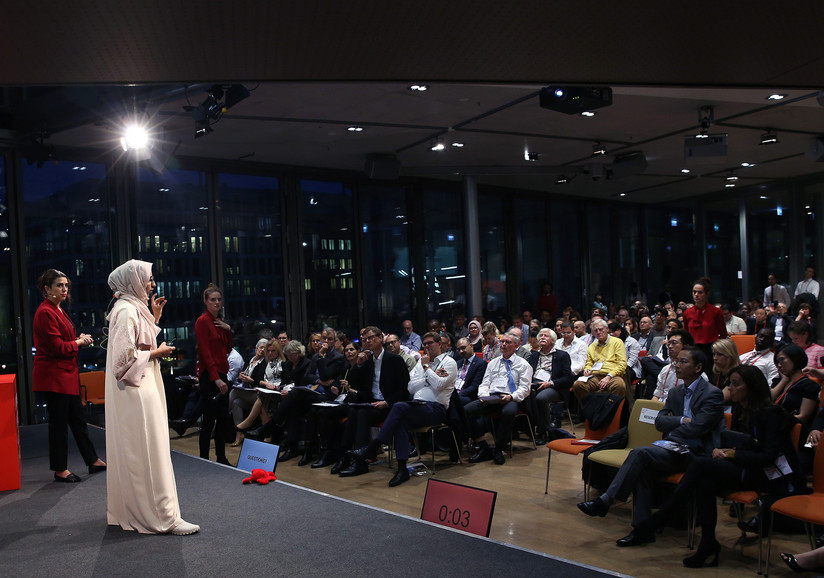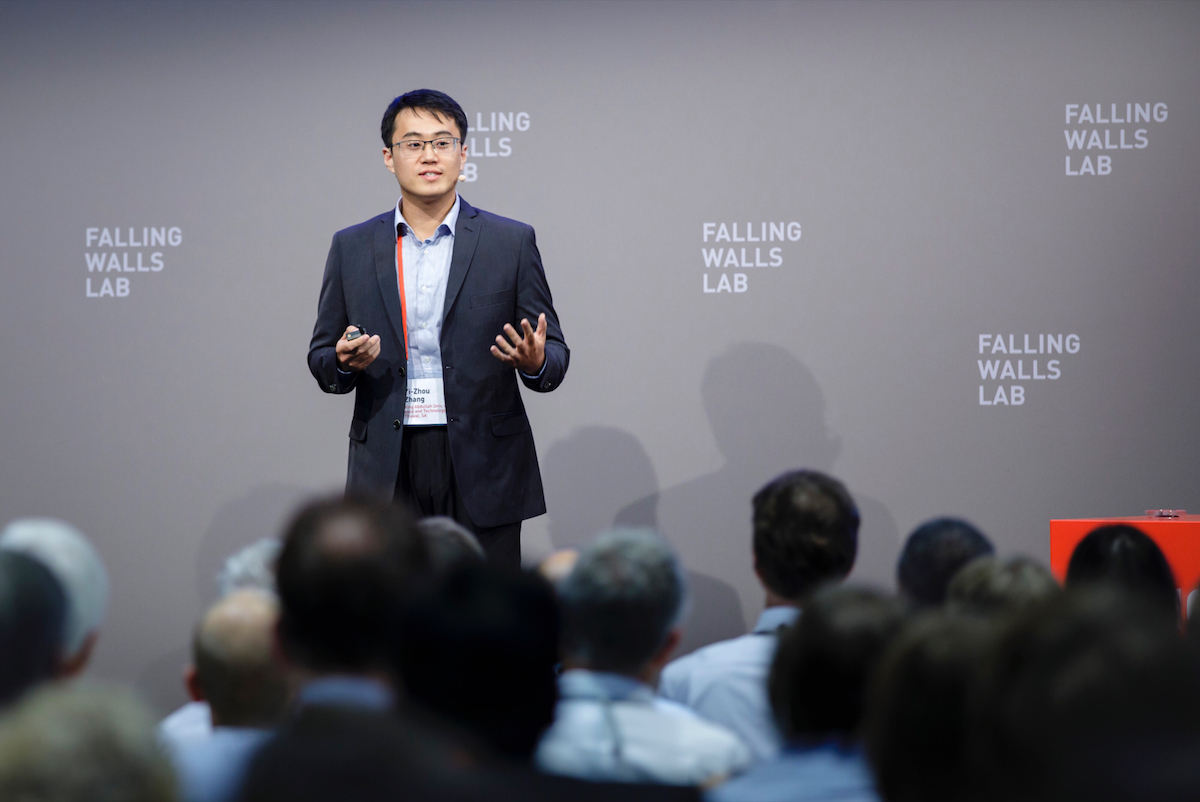KAUST at Falling Walls in Berlin

KAUST Ph.D. student Hanan Mohammed (pictured) and KAUST postdoctoral fellow Yizhou Zhang represented the University at the Falling Walls Conference in Germany on November 8. Image courtesy of Falling Walls.
-By Annie Parenteau, KAUST News
KAUST Ph.D. student Hanan Mohammed and KAUST postdoctoral fellow Yizhou Zhang represented the University at the international Falling Walls Conference in Berlin, Germany, on November 8. Falling Walls, an annual competition for young scientists, innovators, entrepreneurs and creative thinkers, promotes exceptional ideas capable of changing the world.
Mohammed and Zhang were selected as the top winners from 15 finalists at the KAUST Falling Walls Lab in September. The University's Graduate Affairs' Office of Professional Development sponsored the 2018 campus competition and brought Dr. Stephen Mansfield, a specialist in communications, to KAUST to mentor the contestants for four days.

Falling Walls is an annual competition for young scientists, innovators, entrepreneurs and creative thinkers. Image courtesy of Falling Walls.
Falling Walls gave Mohammed and Zhang the opportunity to present their innovative research in front of a high-caliber jury made up of experts from academia, business and the public. Presenters had three minutes each to discuss the scope of their research.
"One of the greatest challenges I faced was to simplify my research concepts and make intangible concepts easily understood," Mohammed said.

KAUST postdoctoral fellow Yizhou Zhang attended the international Falling Walls Conference in Berlin, Germany, in November to present his research work. Image courtesy of Falling Walls.
In Berlin, Zhang presented his research into a viscous black hydrogel that can, for example, stretch, self-repair and detect facial expression. The hydrogel is the combination of a novel 2D nanomaterial called MXene and a hydrogel, which is a mixture of water and a polymer (polyvinyl alcohol).
The resulting black gel is cheap to produce and features asymmetric conductivity—it behaves as a biosensor, detecting facial expressions, speech modulation and touch when placed on parts of the face or body. The material holds promise for different biosensing and biomedical applications.
.jpg)
KAUST Ph.D. student Hanan Mohammed took part in the Falling Walls Lab event at KAUST in September. File photo.
At the event, Mohammed also presented her work in revolutionizing data storage in response to limitations in data centers in terms of space and energy.
"If we continue storing data as we do now, by 2030 the data centers will consume the equivalent of the energy of Europe, Africa, and a part of Asia," she explained.
To remedy the situation, Mohammed suggested we must shift away from current 2D architectures and move to 3D architectures where data can be stored vertically aligned on a substrate, thereby decreasing the device footprint.

KAUST Ph.D. student Hanan Mohammed presents her research work at the international Falling Walls Conference in Berlin, Germany, in November. Image courtesy of Falling Walls.
By using cylindrical nanowires with a unique magnetic composition, several data bits can be stored along the nanowires, increasing the storage capacity by a hundred times. The realization this 3D architecture also requires accessing the bits, and this is demonstrated by using unique physics called spin polarized current. This type of technology would have a large impact on storage capacity and would significantly reduce the carbon footprint.

Young scientists, innovators, entrepreneurs and creative thinkers take part in the annual Falling Walls Conference each year. Image courtesy of Falling Walls.
Falling Walls was a rewarding experience for Mohammed and Zhang, as they learned how to present their research in front of a global audience. Their work also caught the attention of experts who may assist them with developments in the future.
Falling Walls at KAUST will return in August 2019.
Related stories:
-
Breaking the Wall to Berlin
-
Student Focus: Ming-Hui Chiu
-
KAUST faculty members recognized as 2018 Highly Cited Researchers
-
Turning windows into solar panels

